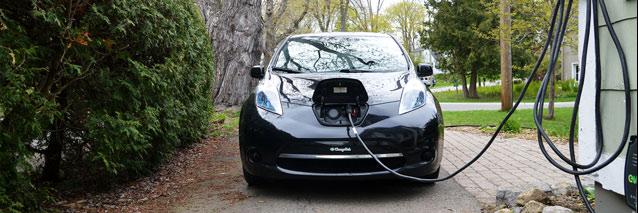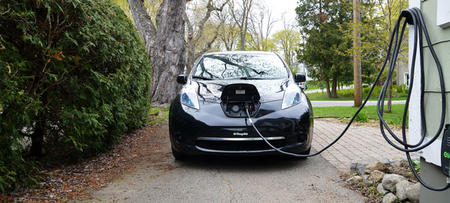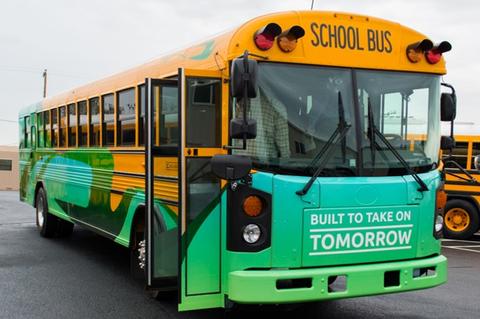[BLOG POST] 6/22/20
- Will Toor, Executive Director, Colorado Energy Office
In April, the Colorado Energy Office released an updated Colorado Electric Vehicle Plan 2020 which lays out ambitious targets for moving the state toward an electrified transportation future. Right now, transportation is our largest single source of greenhouse gas pollution, and it is one of the two primary sources of ozone precursors (oil and gas drilling is the other). Shifting to electric vehicles (EVs) will dramatically reduce pollution and save consumers money, since they are cheaper to fuel and maintain than gasoline or diesel vehicles.
To achieve our climate goals, the updated EV plan confirms a target of 940,000 EVs on thae road in Colorado by 2030 and commits the state to developing a roadmap to 100% electric cars and plans to transition medium-duty (MDV), heavy-duty (HDV) and transit vehicles from diesel to electric (or hydrogen). This EV plan comes on the heels of multiple state actions to support EV adoption. In the last two years, the state has extended tax credits for buying EVs through 2025, adopted a zero emission vehicle standard that requires automobile manufacturers to increase the number of EVs they sell in Colorado, allocated VW emissions settlement funds to support EV charging and the acquisition of electric buses, trucks and school buses, and the legislature adopted Senate Bill 19-77, which allows and directs our investor owned electric utilities to support adoption of EVs.[1]
Senate Bill 19-77 built on the recent growth of EV sales in Colorado—a doubling over the last three years—to ensure that emissions reductions, electric grid efficiency, consumer savings, equity and innovation result in tandem with vehicle adoption. In particular, the bill resulted in two changes. First, Black Hills Energy and Xcel Energy are required to submit regular three-year Transportation Electrification Plans (TEPs) detailing planned investments in transportation electrification efforts by offering EV-specific rates, rebates, programs and pilots. These plans are filed with and approved by the Colorado Public Utilities Commission (PUC)—the public can review and comment and interested stakeholders can petition to intervene in these litigated proceedings. Second, the bill clarified that utilities can make investments on the customer’s side of the meter with these offerings, which will reduce the cost of installing new EV charging stations—a previously-debated area for investments.
Public Service Company of Colorado (Xcel Energy) submitted its first TEP to the PUC in mid-May. Xcel Energy, the largest electric utility in the state, serves 1.5 million Coloradans. Xcel Energy's 3-year $101.5 million TEP proposal includes a wide range of offerings to help residential customers as well as small and large businesses invest in clean, electric transportation. If the plan is approved by the PUC, residential customers will be able to take advantage of rebates for installing their own EV chargers at their homes, or they may choose a turnkey EV home charging service, which will allow them to pay an extra service charge on their bill for use of the utility's charging equipment. Xcel Energy's proposal also includes EV charging support for those who live in multi-unit dwellings, including EV charger rebates for buildings that can demonstrate that at least 66 percent of building residents are low income. Residential customers participating in these programs can also enroll in a charging optimization program, which will provide financial incentives for ongoing participation and lead to charging during periods when electricity is less expensive and more likely to be generated from renewable resources. For commercial customers, Xcel Energy is proposing fleet and workplace charging programs as well as public charging and electric mobility programs, including creating community charging hubs in partnership with municipalities. Xcel Energy will also offer advisory services to residential customers, fleet managers and community leaders who need help getting started with EVs. Finally, Xcel Energy proposes to continue to innovate through further research on the electrification of shared mobility, reducing fast-charging costs through energy storage, charging optimization solutions for fleets, using advanced meters to detect the presence of EVs to support grid planning and electrifying school buses.
Black Hills Energy serves 96,000 customers in southern Colorado including Pueblo, Cañon City, Rocky Ford and Cripple Creek. Under its proposed Ready EV TEP filed in early May, Black Hills Energy seeks to offer rebates for its customers to install charging stations, including single family and multifamily residences, businesses, governments and nonprofits as well as limited expansion of fast-charging stations. To qualify for rebates, customers must agree to new rates with time-of-day pricing to help ensure EV charging happens during periods when it is cheaper to generate electricity and lower-emitting resources are more plentiful. In Black Hill Energy’s proposed plan, which has a budget that scales up from $400,000 to $500,000 over three years, the utility also proposes processes for customer and auto dealership outreach and education. In addition, Black Hills Energy has proposed a regular stakeholder engagement process, which will also be used to help develop a pilot for electric fleet vehicles such as transit. Black Hills Energy is also seeking to modify its policy for how new service is provided to EV charging stations via its Distribution Line Extension policy. This proposed policy would treat EV load similar to building loads by providing a construction allowance that reduces the upfront cost of new utility service. While EV adoption in Black Hills Energy’s territory is smaller than the Denver Metro area, southern Colorado has seen recent growth similar to Xcel Energy’s service territory, with approximately 300 registered EVs in the region and a recent partnership between the City of Pueblo and Black Hills Energy to install several new EV chargers.
The PUC will consider these TEP proposals, and the Colorado Energy Office will be a party to the proceedings. While we have not adopted positions yet on the details of these proposed plans, we are encouraged to see a level of ambition that will support meaningful progress toward the state’s EV and climate goals.
In addition, other Colorado utilities that are not required to file TEPS are also acting to support EV adoption. For example, Holy Cross Energy, a rural cooperative that serves members in five counties on the western slope, has been very active in this area. Holy Cross Energy has an innovative program that makes installing EV charging at a home or business seamless. Home chargers are provided for free, while businesses see no upfront cost, instead it is paid through a small, zero interest rate surcharge on the monthly electric bill over three years. Holy Cross Energy has also developed a community partnership program to team up with local governments to provide fast-charging infrastructure and partnered with the Roaring Fork Transportation Authority to support the adoption of electric buses.
Electrification of transportation is a win-win-win for Colorado. It is essential for clean air and our climate, it will save individual consumers money on fuel and maintenance, and it will be good for both utility customers and the bottom line of the utilities. Going forward, we encourage all utilities in Colorado to develop robust electrification programs.
[1] http://leg.colorado.gov/sites/default/files/2019a_077_signed.pdf


